One harmful habit that can keep anybody from fulfilling their potential is self-coddling. This is when a person encounters difficulty, but instead of pushing through it, runs to a harmful vice in an attempt to self-soothe.
This habit runs rampant in a generation inflicted with participation trophies and grade inflation, which many academics and psychologists now believe do more harm than good.
A story from World War II can help.
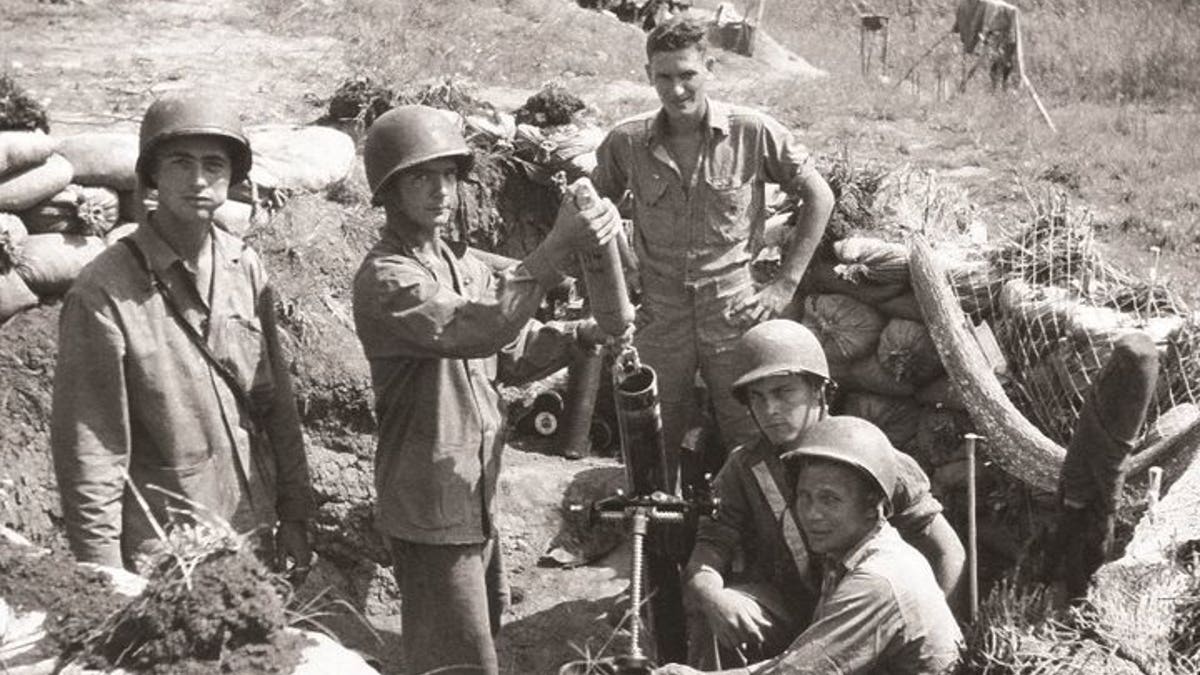
A mortar crew prepares for battle on Guadalcanal. Sid Phillips is crouched, second from right. (Photo courtesy the estate of Sid Phillips)
The Marines of H/2/1 had been fighting an intense battle on Guadalcanal for weeks. C-rations had run out, and the troops were only authorized to eat twice a day – and then only pieces of coconut they’d scrounged mixed with wormy rice confiscated from the enemy.
BATAAN SURVIVOR, 101, REMEMBERS ENDURING POW CAMPS BECAUSE ‘GOD SUSTAINED ME’
Pfc. Sid Phillips (featured in HBO’s miniseries "The Pacific") grew increasingly concerned for his hometown friend, W.O. Brown, who was racked with severe dysentery. Everything Brown tried to eat ran straight through him.
There was no medicine. No cots to lie on. The sick were simply stretched out on the ground. Brown grew so emaciated he became too weak even to sit up. Flies covered him as he lay in his own diarrhea.
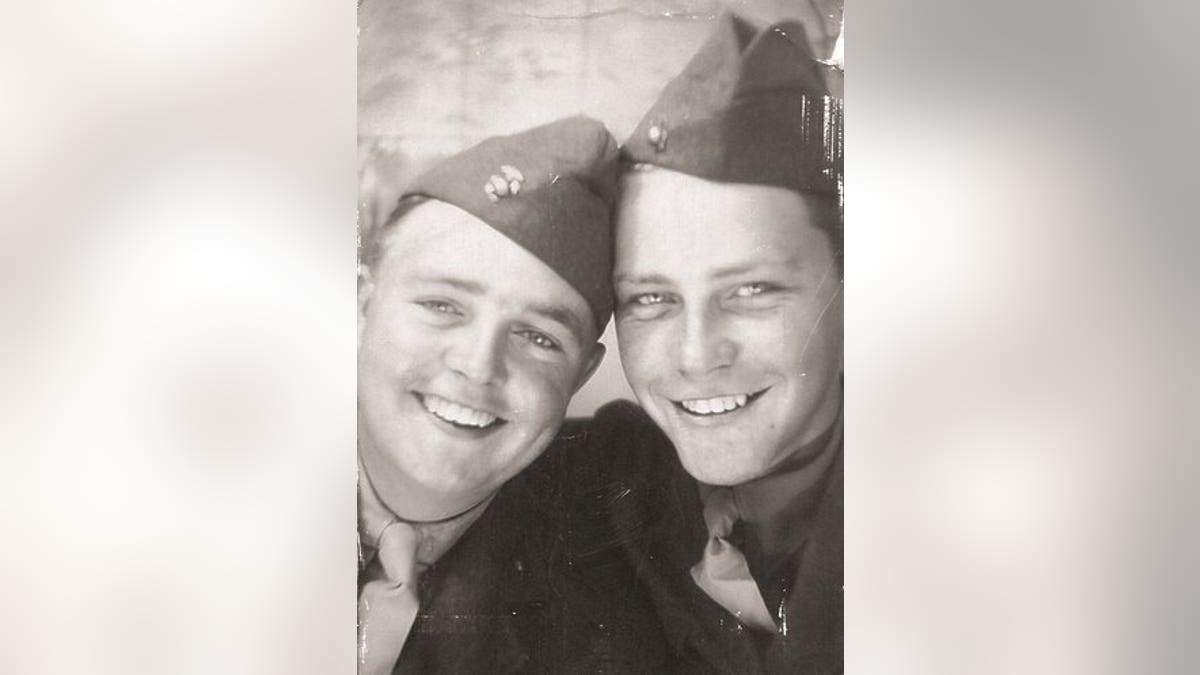
Hometown friends W.O. Brown, left, and Sid Phillips are crammed into a photo booth. (Photo courtesy the estate of Sid Phillips)
Brown’s friend Phillips ultimately lived to age 91. Before he passed in 2015, I interviewed him for my bestselling book "Voices of the Pacific: Untold Stories from the Marine Heroes of World War II," written with historian Adam Makos. I asked Phillips about his experiences on Guadalcanal.
"It was bad," Phillips told me. "I didn’t think W.O. was going to survive."
Each day during lulls in the fighting, Phillips carried his friend to the ocean and helped him get clean.
I asked Phillips if he remembered any specific conversations he had with Brown during these times. Here, I was expecting a poignant story. I pictured this young battle-hardened Marine carrying his nearly-dead buddy to the water. "Keep holding on," Phillips would whisper. "Have courage. Think of mom and apple pie." Something like that.
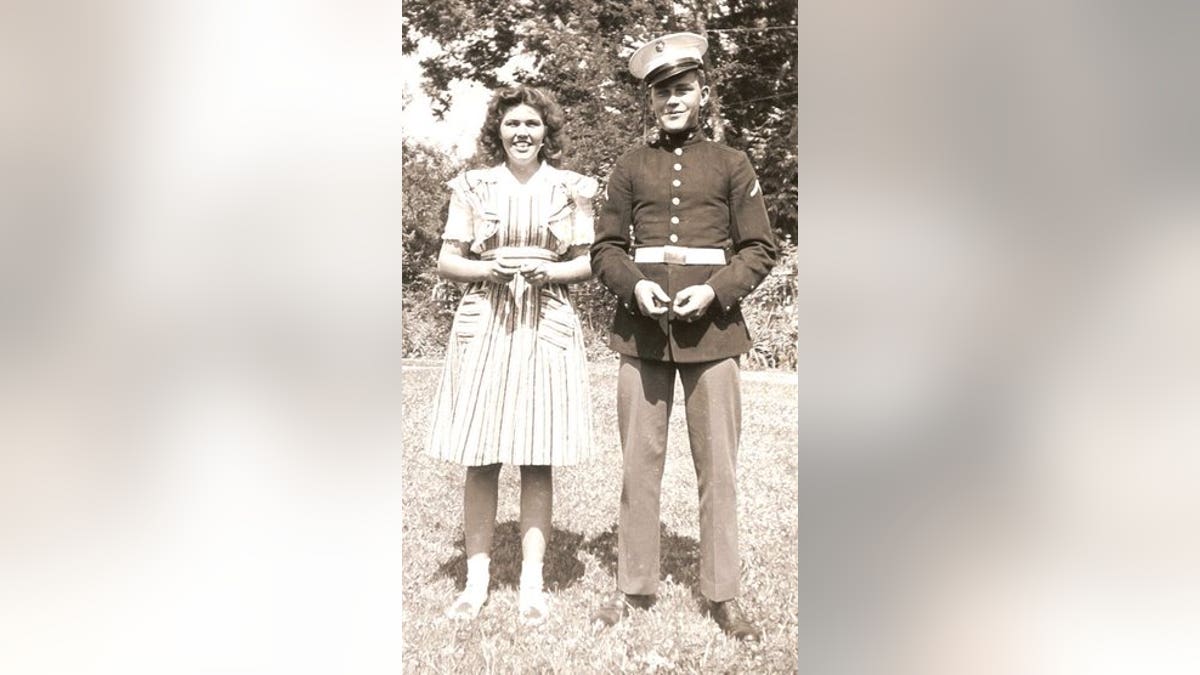
Sid Phillips and his sister, Katharine, after the war. (Photo courtesy the estate of Sid Phillips)
But Phillips just chuckled. "Oh yeah, I remember all right. I told W.O. to stop being such a faker and take a salt tablet."
The response threw me. I asked Phillips, who eventually became a highly respected medical doctor in Alabama, what his strategy was.
"Well, it didn’t help a man to overly commiserate with him," Phillips said. "That just depressed him. But if you kidded him, it made him smile. The ribbing was all good-natured. He’d fire back some wisecrack at you, and soon he’d get to fighting again."
Can Phillips’ strategy apply to today’s generations?
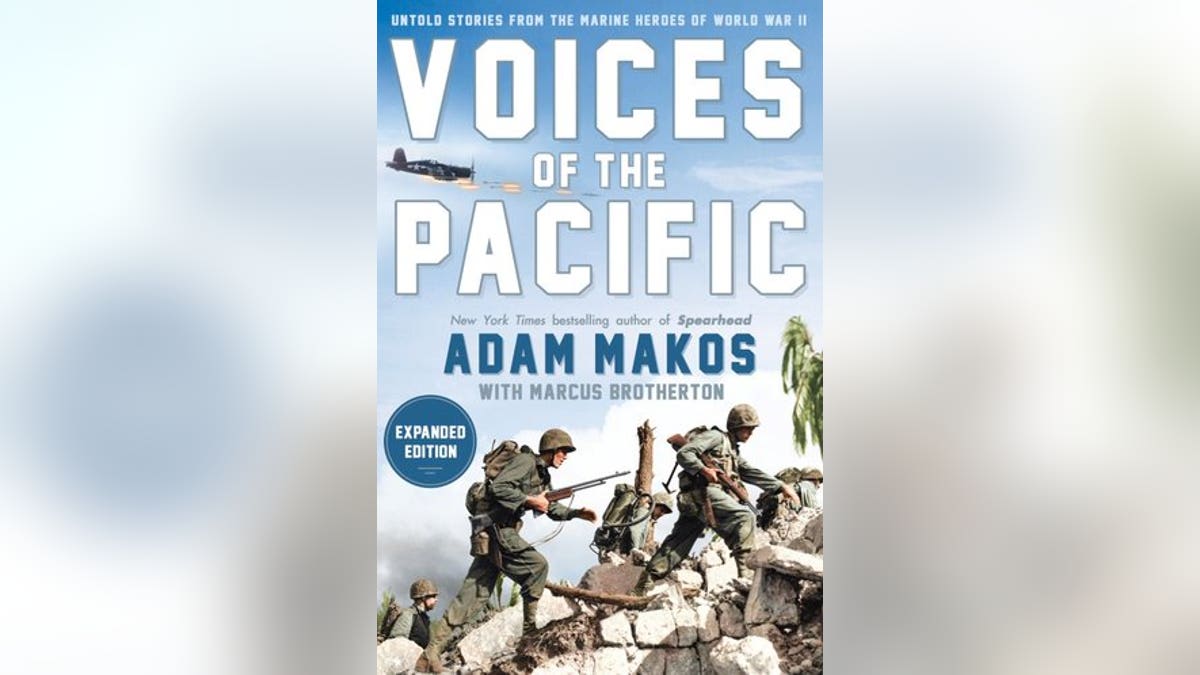
Cover of "Voices of the Pacific" by Adam Makos and Marcus Brotherton
Phillips respected W.O. Brown as a man with the capacity to get up, go on and push through difficulty. Today’s generations need to be taught to believe the same about themselves. We are far stronger than we think we are.
Anytime someone is in a downed place – maybe annoyed, angry, tired, hurt, lonely, stressed or frustrated – they are tempted to be overly self-sympathetic. That brings on that insidious, pampering mindset that tells them they deserve a break – just this once.
CLICK HERE FOR MORE FOX NEWS OPINION
I’m not talking about kicking back on the couch with a bag of chips. Not that kind of a break.
I’m talking about succumbing to the lie that it’s OK to run to a favorite vice. No one escapes this impulse. We’re tempted run to whatever ultimately harms us, because it’s easy to convince ourselves that it helps. It’s the worst form of self-coddling, and it only harms us in the end.
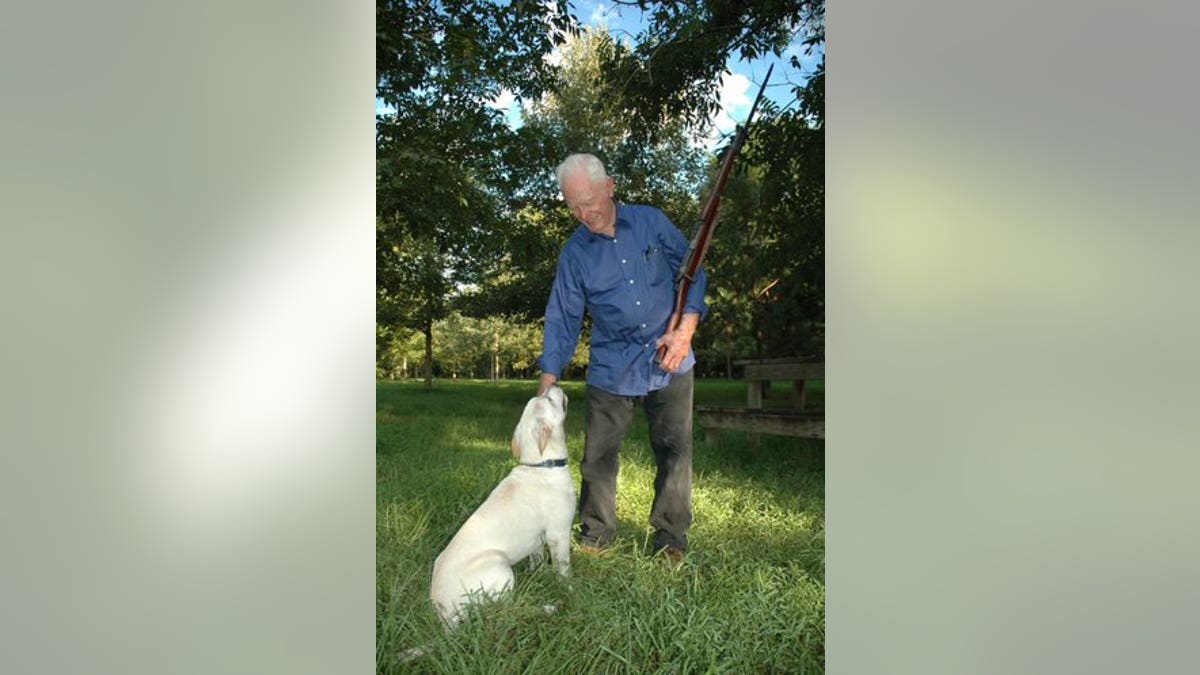
Dr. Sid Phillips, who passed in 2015, with his favorite dog. (Photo courtesy the estate of Sid Phillips)
What’s the solution?
Get tough. Push through the difficulty. Take a salt tablet and get back to the battle.
CLICK HERE TO GET THE FOX NEWS APP
Sure, frustrations exist in life. But we don’t need to drink excessively. We don’t need the insidious vice of pornography. We don’t need to give in to that moment of rage on the freeway. We really don’t. But it’s so easy to convince ourselves that we do.
By the way, the get-tough-with-yourself strategy works.
W.O. Brown survived the dysentery – and the war.









































